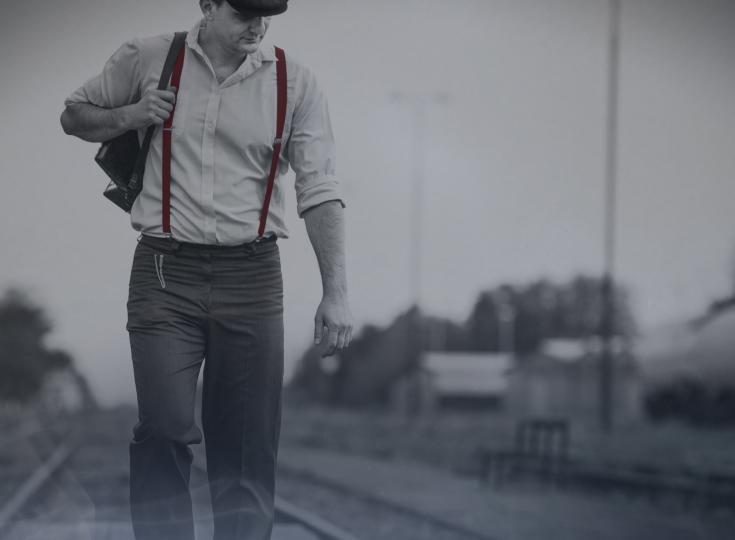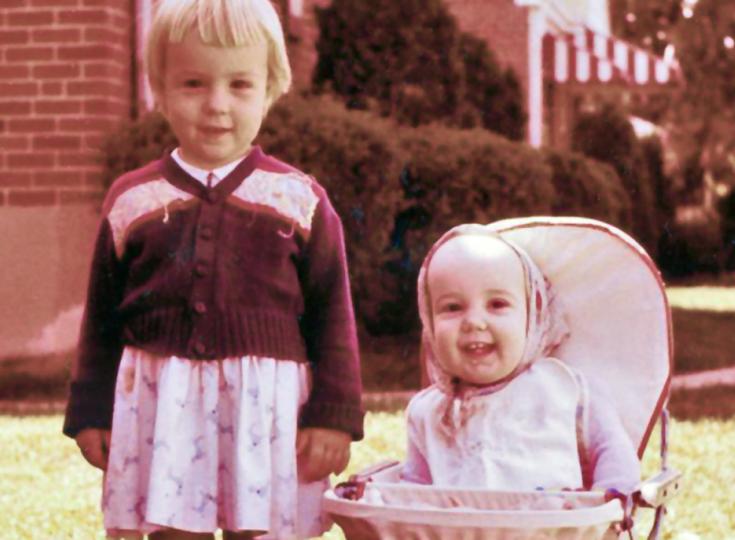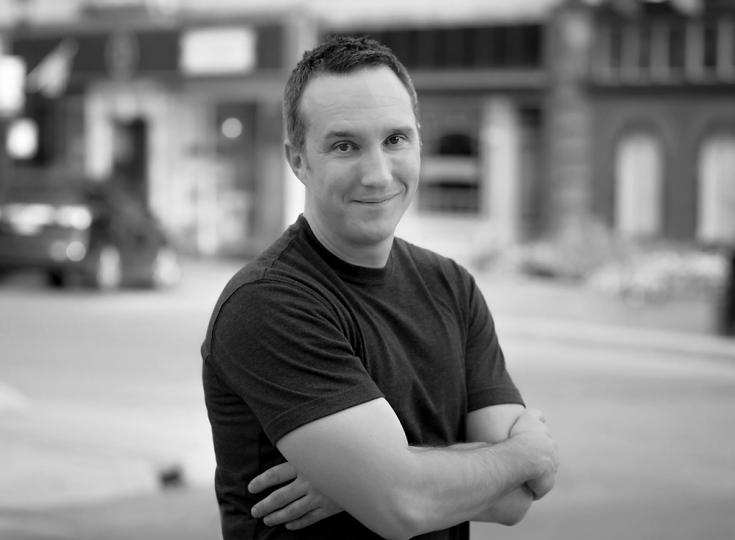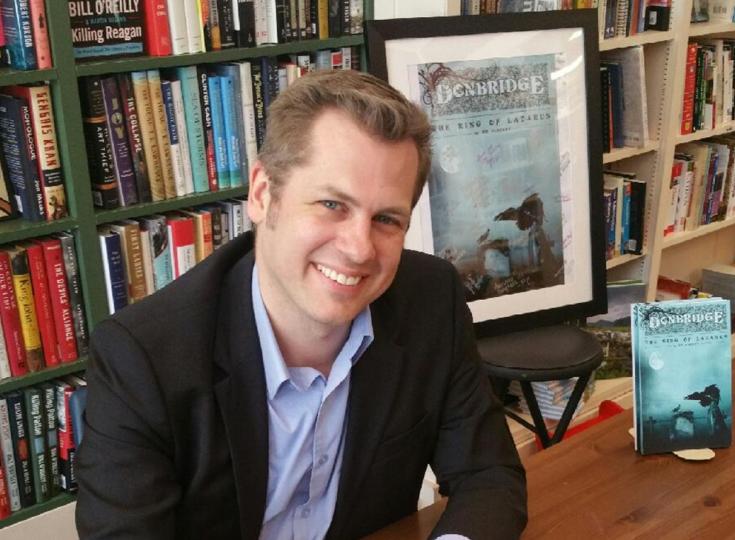Matthew J. Beier - Writing Genre-Defying Fiction
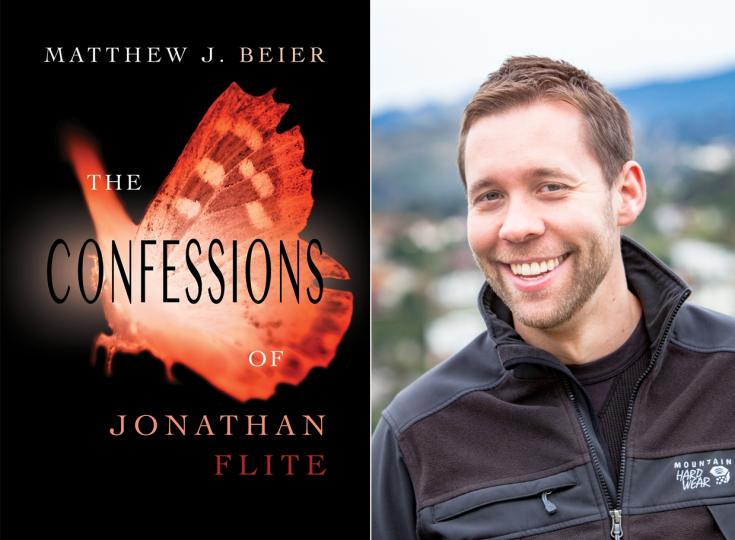
When Matthew J. Beier isn't working as a screenwriter, filmmaker or photographer you will find him writing the next book in his Jonathan Flite series. His books have mystified and captured the imaginations of readers and critics have described it as a genre-defying series. As our Author of the Day, Beier chats about what inspired him to write the first Jonathan Flite book, talks about his writing habits and reveals which book he would really like to adapt for screen.
Please give us a short introduction to what The Confessions of Jonathan Flite is about.
The Confessions of Jonathan Flite is the first in a series of seven books that follows a troubled juvenile delinquent named Jonathan Flite, who claims to have been born with memories of seven teenagers who vanished in Minnesota ten years before his birth. The book weaves the early story of one of these seven teenagers together with Jonathan's story, laying the groundwork for how these so-called "Idle County Seven" disappeared and ultimately became linked to Jonathan himself. The book intertwines "heavier" topics like life, death, consciousness, reincarnation, religious terrorism, faith, and science with a story involving small-town murder, ghost hunting, and strained family dynamics. While the book (and series) is purposely structured to jump around between different complementary plotlines and time frames (basically to convey the idea that time as an illusion), my #1 goal was to keep it all compelling and not a slog. I hope I’ve succeeded in this regard!
What appealed to you about writing in this genre? And why do critics say this is a genre-defying series?
The Jonathan Flite series is so multi-genre that it’s almost non-genre. This was never my intention, though I now realize that the books thus far ultimately fit with the vision I always had for them (since my teenage years—I’ve been working on them since age sixteen, roughly). The books are a serious mishmash, though. they’re equally divided into YA, coming of age, psychological thriller, paranormal mystery, crime, and even some science fiction (mostly related to current mysteries in the realms of neuroscience and physics—speculation about the origin of the universe, physical matter, and consciousness, etc.). I’ve always been someone who wonders about the nature of things, and it’s sometimes amusing to me how easy it is for people to forget just how much we don’t know. I like to think that if we as a species stopped to realize how much we fight over ideologies that are substantiated by nothing more than beliefs in unprovable things, we could find a much quicker route toward world peace. I guess that was always the appeal of writing a book series that tackles these themes head-on.
How much, would you say, have you evolved as an author since you first published The Breeders?
Hmmm, I’m not immediately sure. In terms of writing and plotting skill, I’ll let readers decide. One thing that hasn’t changed, from my point of view, is that I still like to write books that challenge people’s preconceptions—or at least help them be aware that preconceptions exist. Overall, though, I think I’ve become more sure of myself in taking risks. I published The Release of Jonathan Flite (Book 2 in the Jonathan Flite series) in December of 2016, and apart from it’s continuing some basic plot points relating to Christian terrorism (always a touchy subject), it jumps around in time in even crazier ways than the first book did. From a personal evolution perspective, I’m also now officially okay calling myself a writer. Before I published The Breeders, I wasn’t yet sure I was “real.” Even some of the bad reviews for that book complimented my writing skills, which helped me gain some confidence. People can hate the topics I write about or what I put my characters through, but I now know that as long as I’m honest in my efforts and true to my vision, I don’t need to care.
What inspired you to write about someone who experiences memories he can't explain?
Stories abound about children who claim to have memories of times and places they have never lived in, and there are certain fringe psychologists out there who seriously study the phenomenon. What really made my Jonathan Flite series gel was a documentary I watched on YouTube in 2009 about a boy in Scotland who, when he first started speaking, talked about his “other mom” and “other house” and “other life” on a tiny island he had never before visited. The documentary crew then took the boy to the island, and he pointed out his old house, knew his way around, etc. There’s also the more mainstream story of James Leininger, who apparently at a young age had [later corroborated] memories of being a WWII fighter pilot. In general, this topic is fascinating to me, because apart from suggesting some greater meaning to life, it also challenges both scientific and religious preconceptions about the nature of consciousness.
Tell us more about Jonathan Flite's character. Who is he and what makes him so special?
Jonathan Flite, a resident of Newport, Rhode Island, is a convicted murderer living in a for-profit rehabilitation center, having been tried as a juvenile at age thirteen for strangling his nurse. As his release from the rehabilitation center looms (the topic of the recently published second book), people around Newport—including his mother—grow increasingly nervous to have him walking the streets again. But there’s a side to Jonathan the public has ignored: that he spent his early years in great confusion, claiming to have memories swirling in his head of seven teenagers who vanished in Minnesota in 2010, ten years before his birth. The memories themselves (as readers will see) were traumatic enough; even more traumatic, however, was the fact that his mother and therapists never believed him or validated him. This all led to a burst of frustration—the killing of his nurse—and only a few people (including his judge) were open-minded enough to consider the full picture. Part of the fun of writing this character is that I purposefully never narrate from inside his head. Instead, his story is always told from the points of view of people around him. Once I realized the story had to be written this way, the series took shape. Saying anything further about why he is special and why he has seven sets of memories would involve spoilers, so I’ll leave it at that.
Did you know right from the start that you were going to make this into a series? How do the other books in the series tie in with this one?
I did know this was going to be a series very early on, but there were a few disconnects along the way—up until 2009, when I first saw the aforementioned YouTube documentary about the Scotland reincarnation boy. I had written almost three full books between 2004 and 2008 detailing the stories of the first three Idle County Seven members, those Minnesota teens who vanished just outside their small town, in a local forest called the Moon Woods. I knew there was going to be one book for each vanished kid, and while the stories worked as a series in that current state, they were lacking the overall aspect of it all that truly intrigued me. I knew how and why these kids disappeared, generally, but what would the implications of these events be? How would their story affect the world? In 2007, I had separately created a character named Jonathan Flite (named after Miss Flite, my favorite character from Charles Dickens’s Bleak House), but all I knew then was that his story was weird and mysterious—something I wanted to pursue. When I finally saw that documentary about the Scotland boy who claimed to have past-life memories, all the separate pieces came together. It was then a matter of figuring out how to properly tell the story. I wrote the first book in multiple ways, but it only ended up working once I decided not ever to get inside Jonathan’s head as a character. It opened up countless channels through which I could embrace the scope I was aiming for.
Which character did you find the most challenging to create?
This is an interesting question, because as cliche as it sounds, my experience with writing is that I see stuff in my head—much like memories, actually—and then I have to figure out how to convey it in a way that makes sense and is compelling. Characters are the same; they’re already there in my head, basically as imaginary people I think about more than real-life people. (Yes, I probably need therapy.) That said, I think the biggest challenge was conveying Jonathan Flite properly. There are a lot of layers to him, and I needed him to be both frightening and somebody readers could be sympathetic toward, once his story starts “unpeeling,” so to speak. In The Confessions of Jonathan Flite, he is almost stoic, because he is holding so much in. In The Release of Jonathan Flite, he has to fight this urge head on as he faces public life. There are many aspects of him yet to be unveiled in future books, but so far, I hope I’ve done a decent job of making him a compelling and mysterious character.
Your descriptions of your locations (such as the library) are very vivid, creating a very specific mood. How do you pull this off?
For me, it’s all about reaching back into childhood. I grew up in Duluth, Minnesota, a rather small city in northern Minnesota where not much of global significance happens. Pretty much all the fictional places in my book series (particularly Idle County, the region in southwestern Minnesota where much of the story is set), are reflective of everything I either experienced as a kid or imagined as a kid. The library in particular is so vivid in my mind, and it’s my fantasy version of the library I used to visit near my childhood home (which has since been turned into a house). I loved the way the afternoon light shone through that building’s windows, onto the books, and I always imagined where all the doors and stairways I never approached led to. There’s another location in The Confessions of Jonathan Flite called St. Andrew’s Grotto, and it’s also a fantasy version of a real-life grotto behind the church I grew up attending. It was normal enough in real life (in context of the church setting), but in my imagination, it was always creepy as hell.
Your story affects readers on a psychological level. Was that intentional?
As I mentioned above, I do like writing stories that challenge people’s preconceptions about life and society. I think that good and valuable entertainment does this. Whether it comes in the form of a novel or a movie or a Netflix series, fiction has the power to help people see new things in the real world and/or understand it in unforeseen ways. That’s why I love it, and that’s probably also why I write it--to help myself explore new thoughts, feelings, and ideas. So, I guess you could say affecting readers psychologically was intentional. I think all artists aim for this, on some level.
Besides writing, what other secret skills do you have?
I’m a photographer, video producer, and graphic designer. I’m also working on two screenplays, which I either hope to sell or produce. (Filmmaking, or at least the screenwriting portion of it, is another passion of mine.) I also tend to be a life coach to everyone around me and would actually enjoy doing that for a living—even though I’m probably the one who needs coaching. Otherwise, I’m exceedingly introverted and boring.
Tell us about your writing habits. Day/evening? Pen/computer? Plotter or pantser? Favorite writing spot?
I currently still have a part time day job, so I’m limited to working in mornings and on my two days off. When I don’t quite have a clear writing trajectory, I often brainstorm with either a notebook and pen or in a typed document. When I actually sit down to write book content (or try to), I religiously use my MacBook Air and Scrivener while drinking tea and listening to movie scores—usually at the nearest Starbucks. It’s the most enjoyable part of my life! In terms of plotting vs. pantsing, I’ve had to do a bit of both with the Jonathan Flite series. It has been extremely necessary to plot all the backstories involved, because there are many plants and payoffs that need to happen over the course of the seven books. At the same time, writing from other points of view than my main character allows me to be somewhat spontaneous with each new book in terms of how I’ll actually tell the story. It’s especially fun (and a relief) when such spontaneity leads to unforeseen story developments that end up saving the book(s) from being total crap.
Name a book or a story you wish you'd written and why.
Can it be a movie series? My life dream is and was to adapt Stephen King’s The Dark Tower for screen. I even wrote a full feature spec adaptation of The Gunslinger, the first book, that I was going to use as a sample to show anyone who cared that I had the chops to do it. Now, the movie is already being made, and I missed the boat. My heart is broken, but I would still love to work on one of the sequels. If this question has to pertain to a book, I would say Never Let Me Go by Kazuo Ishiguro, because it’s positively beautiful and made me emote more than any book I have ever read.
What are you working on right now?
I am currently working on Books 3-7 of the Jonathan Flite series, but in particular as part of the effort to write Book 3, The Rise of Jonathan Flite. It is taking a lot of careful plotting so that I don’t write myself into a corner down the line. As I said before, I’m also working on two screenplays—but focusing more heavily on a smaller feature script I hope to shoot here in San Francisco within the next few years.
Where can our readers discover more of your work or interact with you?
My website at www.matthewbeier.com has the most relevant information about me, but I would be most interactive via my Facebook Author Page or Instagram feed @MatthewJBeier. I also welcome e-mails from readers at “[email protected],” and I’m always available for interviews or blog tours.
